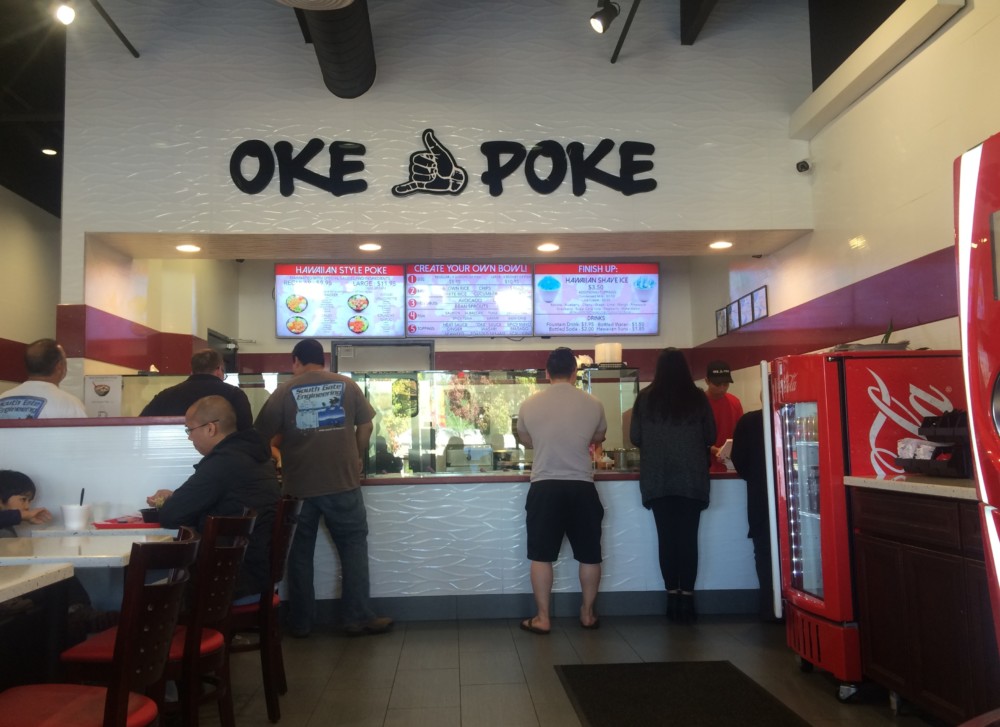By Neil Nisperos
Inland Valley Daily Bulletin, Calif.
WWR Article Summary (tl;dr) According to a new study by the UC Riverside School of Business Administration, Asian-owned businesses within the Inland region are outpacing other entrepreneurs in terms of new openings and revenue.
Inland Valley Daily Bulletin, Calif.
Minnie Baral had no restaurant experience when she opened Oke Poke restaurant in Chino Hills.
Baral, a member of the Corona-based Asian Business Association Inland Empire, believes Asians are risk-takers, and thus reap the rewards.
“They tend to try and explore certain businesses other people won’t,” Baral said. “For myself … I have a real estate/nursing background and I opened a restaurant. I took the risk to do that because I thought I had a good concept.”
It’s that kind of initiative that is spurring Asian-owned businesses to outpace other entrepreneurs in terms of new openings and revenue, according to a new study by the UC Riverside School of Business Administration Center for Economic Forecasting and Development.
Within the Inland region, average per-firm revenue at Asian-owned businesses exceeded all others by more than $20,000, or by 7 percent, during the study period of 2007 to 2012, researchers said.
During the research period, revenues grew by nearly 40 percent at Asian-owned businesses in the Inland Empire, even outpacing their counterparts statewide, who grew their businesses by nearly 30 percent, according to the report. By comparison, overall revenues growth in the Inland region was 9 percent, while the state saw an increase of 8 percent.
The number of Asian-owned businesses also grew at a rate of 15 percent locally, compared with 8 percent for the total number of new firms.
“I know that Asians in general are hard-working people, and they’re very resourceful,” said Raziel Arcega, owner of LNR Promotions, a marketing firm based in Chino, and past president of the Asian Business Association Inland Empire, a nonprofit trade organization working to promote the growth of Asian-owned businesses.
“We get into different types of businesses, that are very profitable, lucrative and where there are good opportunities,” Arcega said.
The report concurs that strong revenue outcomes for Asian-owned businesses may be related to the types of industries they enter. In the Inland Empire, Asian-owned businesses have significant concentrations in health care and professional, scientific and technical services, all of which tend to be high-income sectors, according to the report.
“For whatever reason, I’m not exactly sure of the reasons, they have a higher concentration in certain industries,” said Robert Kleinhenz, executive director of Research at the Center for Economic Forecasting and Development, “… that more typically are high-value industries, like health care and financial services.
“So you have industries that are high-value added that also tend to be of larger size. So accordingly, those are some of the explanations as to why Asian-owned businesses have higher revenue,” he said.
Kleinhenz also cited higher levels of education in that demographic.
“When you look at educational attainment for Asian-Americans, it’s as high, if not higher than all Americans,” Kleinhenz said. “We know that there’s a strong correlation between educational attainment and things like incomes … and the types of occupations one goes into.”
Officials with the Asian Business Association Inland Empire say they’re not surprised by the positive numbers.
“Asians are known for their hard-working traits and they save money and they believe in education,” said Deborah Kristianto, president-elect of the local Asian Business Association. Her husband, Han Kristianto, owns a referral-based automotive repair business.
“Now they’re finding ways to go into the Inland Empire market through government contracts, export and import and things like retail,” she said. “There are more and more massage, nail salons and restaurants. All of that is growing really fast in the Inland Empire.”














































































































































































































































































































































































